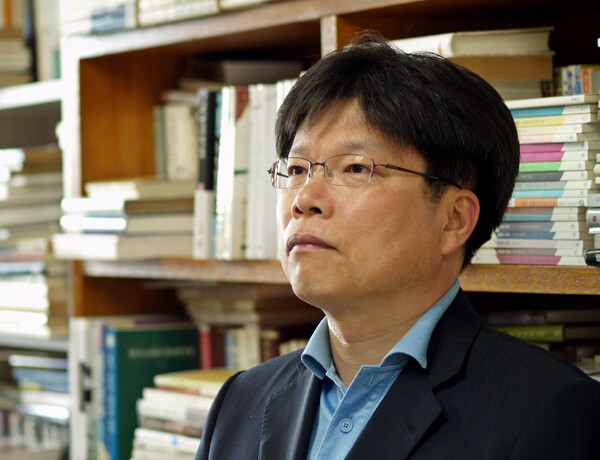On September 29, 2022, Yoo Sung-ho, a professor in the Department of Korean Language and Literature at Hanyang University (HYU), was selected as the winner of the tenth Jungsan Literature Award. The steering committee of the Jungsan Literature Award said, “Yoo Seong-ho’s criticism is unrivaled in that it encompasses literary history and a sense of reality,” explaining why the committee appointed professor Yoo as this year’s winner. The award ceremony was held at 11 a.m. on this October 8, at the Best Western Plus Jeonju Hotel. The Jungsan Literature Award was established in 2012 by poet Lee Un-ryong (1938-2022) and is awarded to writers who have contributed to the development of Korean literature, literary social status, and workmanship.
Q. What are your thoughts on the direction of Korean literature and the series of efforts to move toward it?
A. Recently, Korean literature has entered the global world, rising beyond the national level. It has a particularly high awareness and interest base in both the East and West. In the future, we need to foster more competent writers and develop universally as world literature, by focusing on the translation of literary works.
Q. Amid the rapid changes in the media situation, the role of criticism should be different from the past. What do you think the role of criticism is?
A. Criticism has a primary function in interpreting literary phenomena, writers, and works. Now we need to embrace that function and present intellectual and practical agendas that can serve as indicators of a society, so that they can be embodied in community. Criticism should also be developed as an art by focusing on sentences and styles.
Q. Recently, the number of young critics conducting so-called “critical writing” or “combative writing” is gradually increasing, but our community’s attitude towards accepting critical writing is still quite stubborn. What is your opinion on this?
A. Of course, the critical community has to embrace this phenomenon. Furthermore, it has to absorb and reflect on the energy that such writing generates. It is criticism that enables all forms of writing to be possible.
Q. As a leading figure of literary criticism, do you have a vision or goal you want to achieve in the future?
A. We live in an era where political regression continues, while cultural intellectuals are leading downward standardization. In this context, criticism must be at the forefront of intelligent alternative proposals while keeping the elite to a large extent. I am not going to let go of that process.

A. Just because you are a critic like a judge does not mean you should be a high-handed guide provider. I would like to comprehensively accept all the traces of literary achievement to inform the students that literature is not a competitive superiority but a horizontal coexistence.

